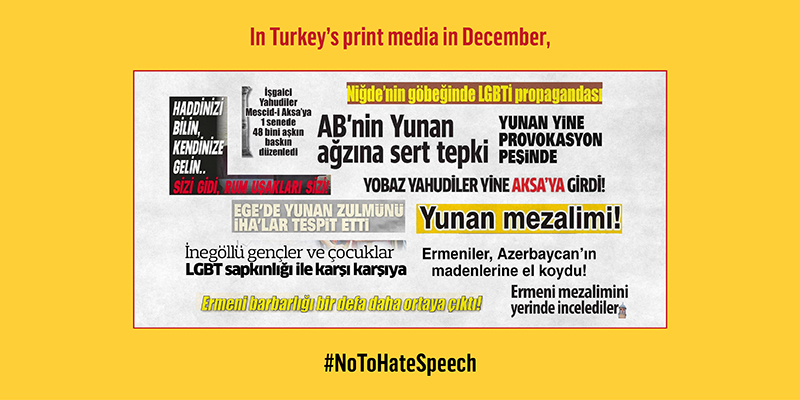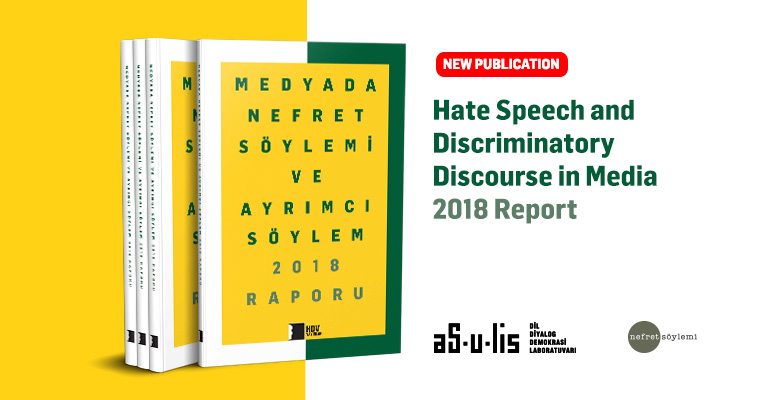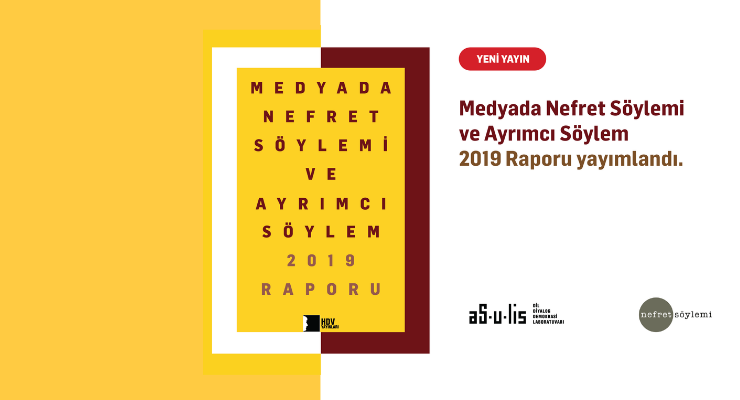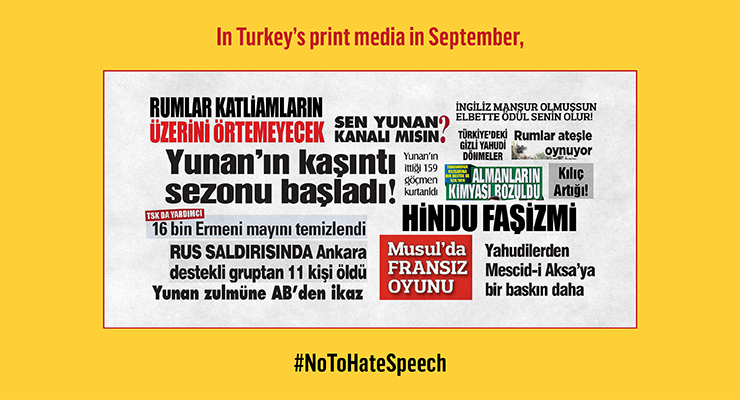Using critical discourse analysis, we evaluated news articles and columns that were published in Turkey’s national and local press in December 2022 and targeted national, ethnic, religious, and LGBTI+ people. You may access news clippings and detailed analysis at “Hate Speech in the Press: Our Selections from December.”
In the Turkish print media in December;
● The Greek state’s policies on migrants and political tensions between the governments of Turkey and Greece incurred negative discourse about the Greek identity, linking it to aggression, violence and a lack of human values.
● Homophobic discourse targeting gender identity and sexual orientation designated LGBTI+ people as a threat to children, youth and families.
● News about current and historical issues between Armenia, Azerbaijan and Turkey designated the Armenian identity as a source of violence and threats.
● Responsibility for the actions of one group was generalized to an entire identity with the use of negative descriptions that targeted Jews.
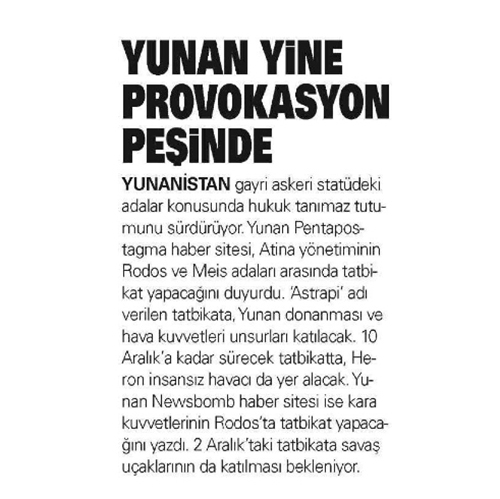 |
1. Akşam, “The Greek once again pursues provocation” The headline for a news story about the Greek navy and air force’s maneuvers near the islands of Rhodes and Kastellorizo designates the Greek identity as a threat. The military exercise in question is problematized by attributing it to the Greek identity and is defined as a 'provocation'. The emphasis on 'again' reinforces the perception that Greeks consistently pose a threat. Prejudices and a hostile perception are fueled by associating Greeks with violence. |
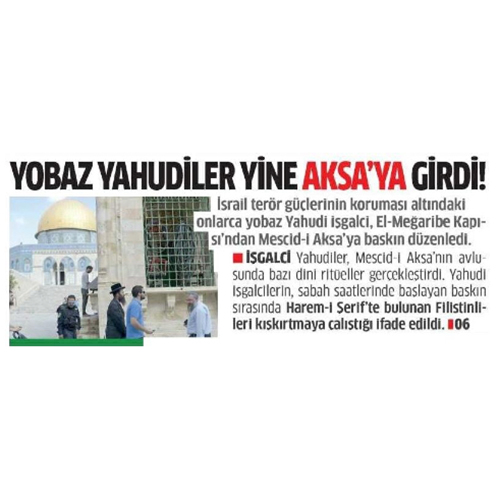 |
2. Milli Gazete, “Jewish zealots enter Al-Aqsa again!” The story claims a Jewish group went to the courtyard of Al-Aqsa Mosque in Jerusalem to perform religious rituals. Responsibility for the actions of a single group is blamed on an entire identity in the headline. The term 'zealot' is generalized to an identity, and the word 'again' emphasizes the action in question is a routine behavior. These methods are used to flag identity as a threat and encourage hostility toward Jews. |
 |
3. Akşam, “UAVs detect Greek persecution in Aegean Sea” News sourced to the Turkish Defense Ministry about unmanned aerial vehicles (UAVs) detecting the Greek coastguard as it pushed back migrants into Turkish territorial waters places responsibility for human rights violations on the Greek identity, which is associated with 'persecution'. Hate speech is produced with the use of negative descriptions, reinforcing prejudices. |
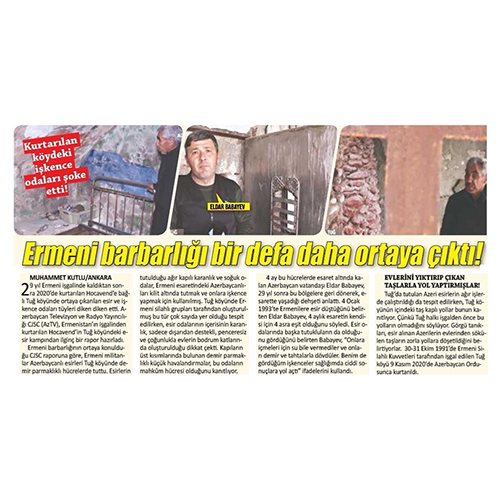 |
4. Yeni Akit, “Armenian barbarism is revealed once again” The news is about allegations from Azerbaijan’s state broadcaster of a prison camp located in Tugh village of Nagorno-Karabakh. But the newspaper story generalizes the Armenian identity as 'barbarian' and designates it as a threat. The headline creates a perception that Armenians pose a constant threat by suggesting the incident in question is one of repetition. Existing prejudices against Armenians are reinforced by associating them with aggression and violence. |
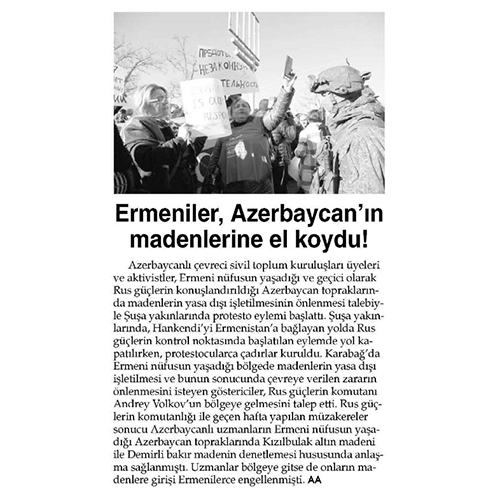 |
5. Yeni Mesaj, “Armenians seize Azerbaijan’s mines!” The news is about Azerbaijani non-governmental organizations’ effort to prevent the illegal operation of mines and environmental destruction in the Shusha region of Nagorno-Karabakh, where Armenians live and that is now under the control of Russian forces. However, while reporting on the events, the responsibility for state policies and actions is placed on the Armenian identity. Hostility towards Armenians, who are designated as a threat, is fueled. |
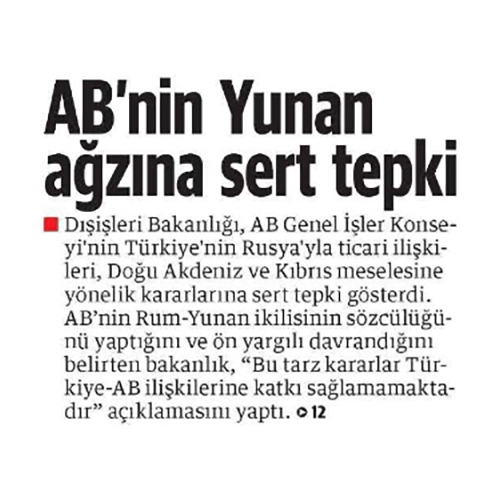 |
6. Yeni Şafak, “Strong reaction to the EU’s Greek viewpoint” The story cites a response from the Turkish Foreign Ministry to conclusions by the European Union’s General Affairs Council on Turkey-Russia relations, the eastern Mediterranean and Cyprus. The reporting on these conclusions links them with the Greek identity. The expression 'Greek viewpoint', which we frequently encounter, makes identity a target for contempt and hostility. The current perception of Greeks as hostile is reinforced with hate speech produced through symbolization. |
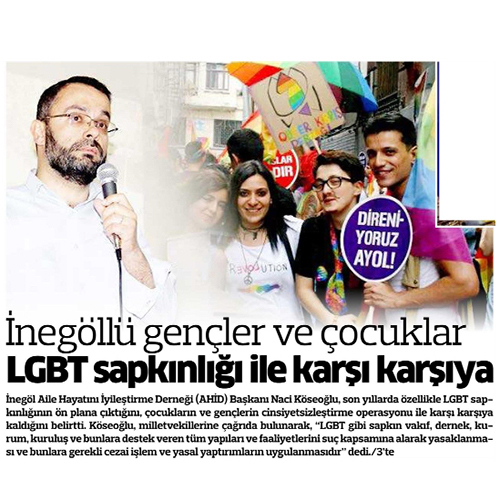 |
7. İnegöl Okur, “Youth and children from İnegöl face LGBT perversion” The news is about a statement made by the head of an association in the town of İnegöl in Bursa that targeted LGBTI+ people. While reporting on the statement, it reproduces homophobic discourse, arguing that LGBTI+ people pose a threat to 'children, youth and families' and describing sexual orientation and gender identity as a 'perversion'. The visibility of LGBTI+ people is problematized, and the news produces a discourse that puts their access to civil rights at risk. |
 |
8. Erzurum Compass, “Armenian atrocities investigated on site” A story reporting on a panel that targeted Armenians in Erzurum and the speeches made by politicians during the discussion associates Armenians with being 'atrocious' in its headline and content. While reporting on the panel that targeted an identity, hate speech against Armenians is reproduced with the use of such stereotyped descriptions. Identity is associated with violence, and the current hostile perception of Armenians is rekindled. |
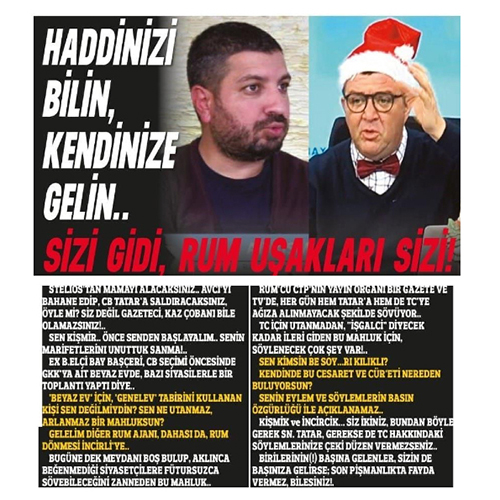 |
9. Kıbrıs Tercüman, “Know your place, come to your senses. You little Greek servants!” News targeting a Cypriot journalist uses the Greek identity as an insult and means of humiliation in its headline and content. Greeks are targeted with the use of stereotypes, and hate speech is produced. Prejudices against Greeks are reinforced, and a hostile perception is fueled. |
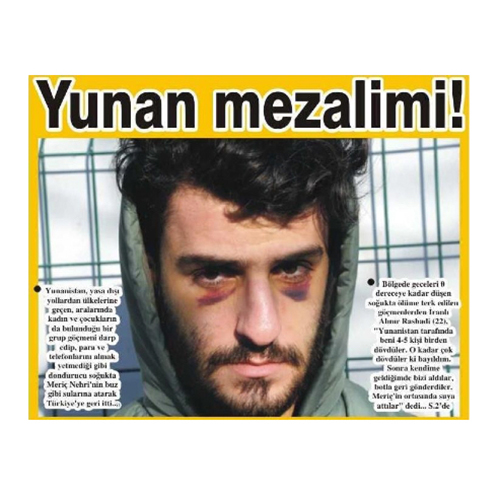 |
10. Hudut Gazetesi, “Greek atrocities!” In a story about interviews with migrants allegedly subjected to violence by Greek soldiers, responsibility for the acts of violence is generalized to the Greek identity. Identity is associated with cruelty through the emphatic use of the word 'atrocities', a stereotype we frequently encounter. The current hostile perception toward Greeks is reinforced, and identity is targeted. |
 |
11. Yeni Akit, “LGBT propaganda in the heart of Niğde” The news is about the display of rainbow-colored umbrellas in the town square in Niğde in central Turkey and how this situation was received by the public. It claims that the colors of the umbrellas reveal LGBTI+ propaganda and that the 'family structure' was targeted. The story emphasizes the need to remove the umbrellas in question and described sexual orientation and gender identity as a 'perversion', deeming them threats. Prejudices against LGBTI+ people are fueled by producing a homophobic discourse. |
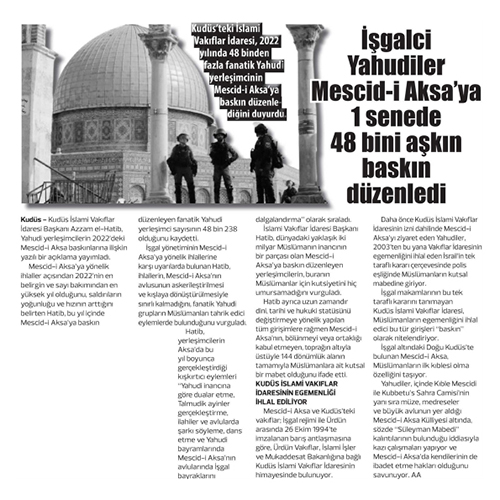 |
12. Doğru Haber, “Occupying Jews raided Al-Aqsa Mosque more than 48,000 times in a year” The news about a statement made by the head of the Jerusalem Islamic Foundations Administration targets Jews in its headline. While reporting on the statement, it puts responsibility for actions that occurred at Al-Aqsa Mosque in Jerusalem throughout 2022 on the entire Jewish identity, and associates that identity with violence. The use of negative descriptions marks identity as a threat and fuels hostility toward Jews. |

This project is financed by the European Union.


